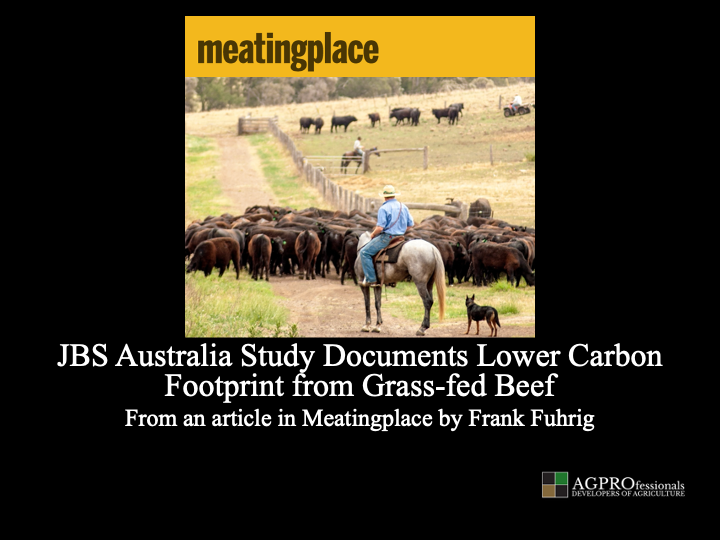JBS Australia study documents lower carbon footprint from grass-fed beef
From an article in MeatingPlace by Frank Fuhrig on 6/6/2024
A study documenting the carbon footprints of 176 cattle farms across Australia has shown that the grass-fed, grass-finished beef has lower emissions than the Australian average, JBS Australia announced.
Data for the findings was independently collected from producers implementing regenerative agricultural practices in New South Wales, Victoria, South Australia and the Tasmanian mainland by IntegrityAg, an Australia-based sustainability consultancy.
“This study has been a unique insight into a large-scale closed beef supply chain that is tied to actual brands, showing impacts from grass-fed beef lower than the Australian average, and other global studies,” scientist Stephen Wiedemann of IntegrityAg said.
The initiative established a carbon emission baseline of 11.6 kilograms of CO2e per kilogram of live weight, 12% below Australia’s national average of 13.1kg CO2e/kg live weight.
IntegrityAg, which is working with JBS Farm Assurance on a further study to find a carbon baseline assessment for sheep, said that the beef study was conducted in conformance with ISO international standards.
Sam McConnell, JBS Southern chief operations officer, said findings from the study, which began with planning work in 2020, are important for future supply chain carbon management initiatives at the farming and processing levels.
“This project is the first step to be able to understand what is happening on-farm and how herd and grazing management can benefit both the environment and farmer, and to have a carbon footprint that meets national and global estimation guidelines is standard of JBS Farm Assurance,” he said.
“Consumers are seeking greater supply chain transparency and understanding of both where their food comes from and how it is produced. This project can help inform consumers about the value of on-farm practices to protect and enhance natural resources while also supporting improved farm productivity.”

